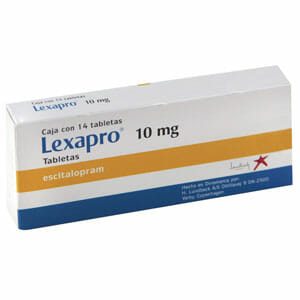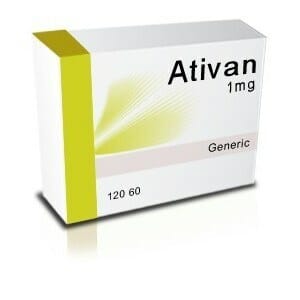The Best Guide to Anxiety Medications That Will Help You Choose Wisely
Anxiety Medication Consumer Guide
Reviewed by:
Dr. Diana Rangaves, PharmDLast Reviewed On:
Feb 24, 22
Understanding Generalized Anxiety Disorder
Everyone finds themselves battling a bit of anxiety from time to time. In most cases this is brought on by life stressors and fades naturally without the need for medical intervention.
If, however, these episodes happen with too much regularity and are severe enough to disrupt your day-to-day life, you could be dealing with generalized anxiety disorder.
The symptoms are similar to those associated with other types of anxiety like panic disorder and obsessive-compulsive disorder, though they’re diagnosed and treated differently.
While certain lifestyle changes and general coping mechanisms can help manage the disruptive symptoms of generalized anxiety disorder, medication is typically needed to get and stay on top of this debilitating disorder.
Antidepressants
Certain kinds of Antidepressants like Selective serotonin reuptake inhibitors (SSRIs), Serotonin norepinephrine reuptake inhibitors (SNRIs) and Tricyclic antidepressants (TCAs) are commonly prescribed to help control anxiety symptoms. They have fewer side effects and a decrease risk of dependence than other drug therapies.
The most common forms include:

- fluoxetine ( Prozac )
- sertraline ( Zoloft )
- escitalopram ( Lexapro )
- citalopram ( Celexa )
- fluvoxamine ( Luvox )
- paroxetine ( Pexeva )
- duloxetine ( Cymbalta )
- venlafaxine ( EffexorXR )
- imipramine ( Tofranil )
Side Effects of SSRIs
Sexual dysfunction such as decreased sex drive are common while taking SSRIs.
However, more serious side effects include:
- nausea
- vomiting
- diarrhea
- headaches
- weight gain
- anxiety
- dizziness
- dry mouth
- trouble sleeping
Side Effects of SNRIs
- nausea
- dizziness
- sweating
- sexual dysfunction
- tiredness
- constipation
- insomnia
- anxiety
- headache
- loss of appetite
Side Effects of TCAs
- dry mouth
- constipation
- blurred vision
- urinary retention
- dizziness
- tachycardia
- memory impairment
- delirium
- orthostatic hypotension,
- weight gain
- seizures
- bone fractures
- sexual dysfunction
- increased sweating
- fatigue
Serious Complications
In addition to the increased risk of suicidal thoughts or behaviors, TCAs have been known to induce more serious side effects such as low blood pressure, irregular heart rate, and seizures. TCAs should never be used within a two-week (14 day) span of taking a Monoamine oxidase inhibitor (MAOI).
Antihistamines
Though antihistamines are most commonly associated with the treatment of allergy symptoms, some versions such as hydroxyzine can also be used to treat certain forms of anxiety.
The most common forms include:
Side effects of Hydroxyzine
- Dry mouth
- Drowsiness
- Dizziness
- Nausea and vomiting
- Restlessness or moodiness (in some children)
- Trouble urinating or not being able to urinate
- Blurred vision
- Confusion
Beta Blockers
Beta-blockers like propranolol are commonly prescribed as a daily medication in cases of anxiety since they’re so great at blocking chemicals such as epinephrine that have a marked affect the on reducing the strain on your heart and blood vessels. It’s particularly effective for treating symptoms performance anxiety and social anxiety disorder symptoms.
Side effects of Propranolol
- Dizziness
- Lightheadedness
- blurred vision
- tiredness
- Nausea/vomiting
- stomach pain
- unusual dreams
- cold hands and feet (worsened by tobacco use)
Benzodiazepines
Fast-acting benzodiazepines are often prescribed for acute anxiety and panic attacks. These anti-anxiety medications are said to provide immediate relief, though they’re the most potentially addictive of the bunch. Still, they have slowly begun replacing barbiturates since they can be safely taken in larger doses.
The most common forms include:

- Ativan
- Valium
- Librium
- Xanax
- Klonopin
Side effects of Benzodiazepines
- drowsiness
- irritability
- dizziness,
- memory and attention problems
- physical dependence
Talk to your doctor to figure out which course of treatment is right for you and don’t be afraid to explore more natural methods to control your anxiety such as meditation and other relaxation techniques, lifestyle changes like exercise and certain kinds of talk therapy.
Join Our Free Newsletter
Get a weekly dose of money-saving tips on your medications, drug side effects alerts, drug interaction warnings, free prescription coupons, late-breaking safety information and much, much more!